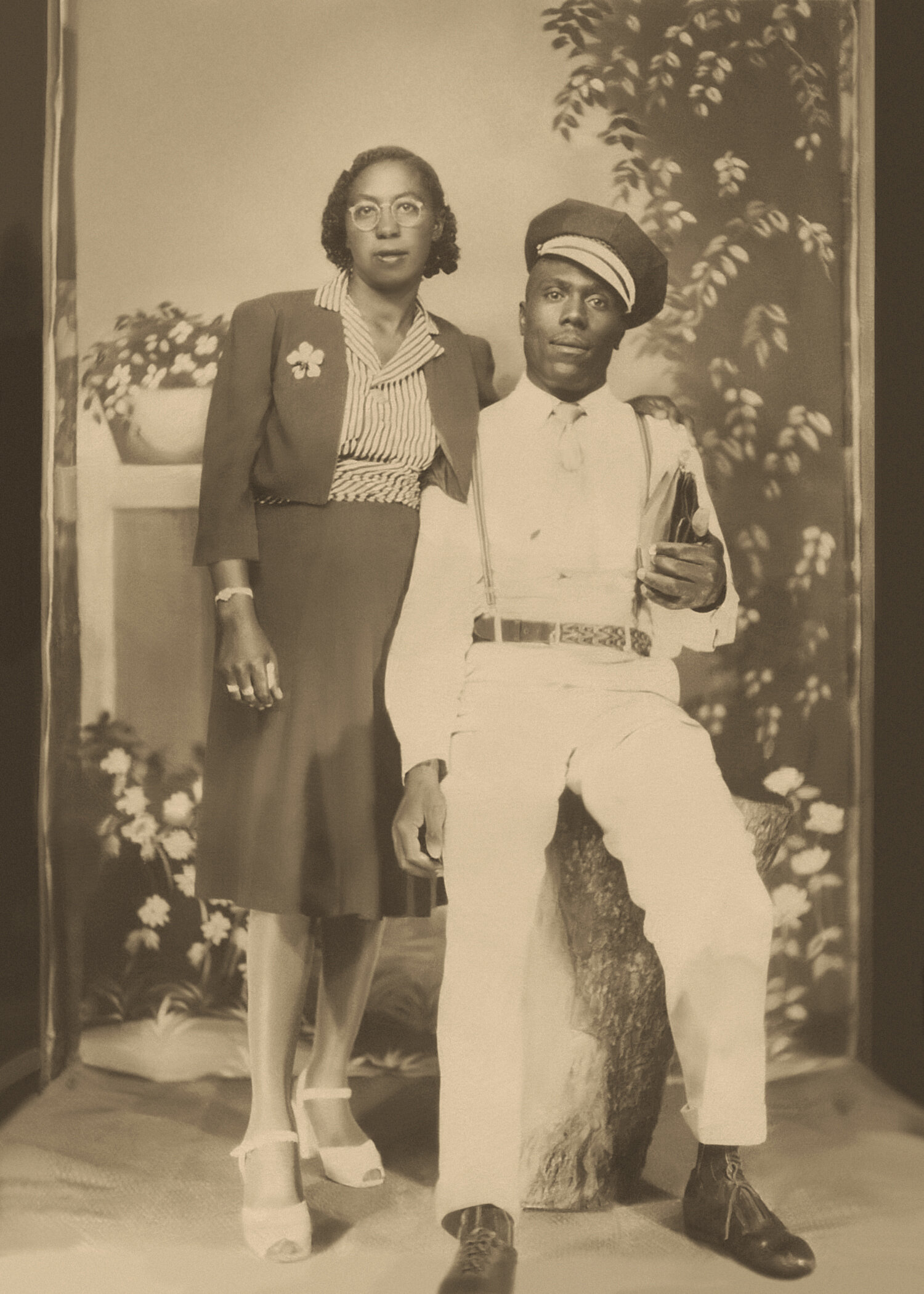About Elmore Bolling
Elmore Bolling started with a mule and wagon and through ingenuity and hard work became a well-to-do farmer, an entrepreneur with a fleet of trucks and a general store, and a philanthropist.
In 1931, Elmore started his livestock business in Lowndes County, Alabama and used the proceeds to buy a Model T Ford which he converted into a truck. Soon, he was making a living not only by raising livestock but also by hauling bone, kindling, scrap iron and tin from rural Lowndes County to Montgomery.
As the business flourished, he bought a ton and a half truck, adapted it to carry passengers, and began transporting people to town to shop. He was a deacon at Hopewell Baptist Church and on Sundays, he transported parishioners to various Lowndes County churches.
With the help of his wife, Bertha Mae Nowden Bolling, and their seven children, Elmore offered prepared foods and drinks for sale to his riders. Ice cream was a favorite of his clientele, and his children made excellent ice cream crankers.
Though his children were important to the operation of his businesses, and though Elmore himself could not read or write, he was ever mindful of the importance of education. Since schools for “colored” children were in session only four months of the year, Elmore placed his oldest children, Louis and Elmore Jr., in school in town. They returned home every Friday to prepare the weekend community Fish Fry, another side business of Elmore and Bertha’s.
As his reputation for reliability spread, whites hired Elmore to haul for them, including big jobs like transporting livestock to the stockyard. Solid success in business allowed Elmore to buy his first tractor-trailer truck.
After purchasing the tractor-trailer, Elmore converted his original “short truck” into a “milk truck” and used it to create a needed income stream for sharecroppers when cotton was out of season. Elmore provided cows that the sharecroppers milked. On weekdays Elmore’s drivers collected the milk from the sharecroppers and transported it for sale to the white-owned dairy.
His sharecropper team worked hard toward earning the monthly “milk check” from the dairy that supplemented their meager sharecropping income. On “check day,” they were delighted to use that money to shop in Montgomery, transported in Elmore’s passenger truck, of course.
Elmore earned a reputation for being a philanthropist.
People said, “the only way Elmore would not help you, is that you didn’t ask.”
When people did not have money for the fare, Elmore would let them ride his passenger truck for free.
And, if someone could not repay a loan, Elmore canceled the debt.
He employed 40 farm hands who grew cotton, corn, sugar cane, millet, and peanuts and raised hogs, cows, goats, geese, guinea and chickens.
Elmore’s trucking business was so successful that he added a brand new tractor-trailer and hired more drivers. He was known to pay well--often better than the white farmers. He also provided a place for his employees to live. He often said, “as long as a man will work, he has a place to stay.”
At the height of his farming and trucking success, he was able to acquire property and establish a general merchandise store with a gasoline pump. Elmore’s store became a gathering place for the Black community.
As Elmore's businesses thrived, some white men were irate that white employers favored Elmore over them for hauling jobs and that Elmore was prosperous enough to lease land and build a general store.
In retaliation, they conspired to gun down Elmore on December 4, 1947.
His family, working at his store, heard the shots and ran to find Elmore dead in a ditch.
No one was ever indicted and justice was never served for the killing of Elmore Bolling.
After Elmore was killed, local white people—including those who respected Elmore and had hired him or had other business dealings with him—falsely laid claim to the small fortune he had amassed (about $500,000 in today’s dollars) and plunged his family into poverty.
For decades, Elmore Bolling’s family believed myths perpetuated by white people—and even by Rosa Parks—about why he was killed: that he was involved in a love triangle or that he had insulted his assailant’s wife. Though Josephine Bolling McCall’s father was killed when she was 5 years old, it was not until she was 60 that she discovered an article in the Chicago Defender describing the real reason for her father’s killing: “Enraged whites jealous over the success of a Negro, are believed to be the lynchers of Elmore Bolling.” This was also the first time she heard her father’s killing referred to as a lynching and the revelation sent her on a ten year search for the truth about her father’s life and death, culminating in her book, The Penalty for Success: My Father Was Lynched in Lowndes County, Alabama.


